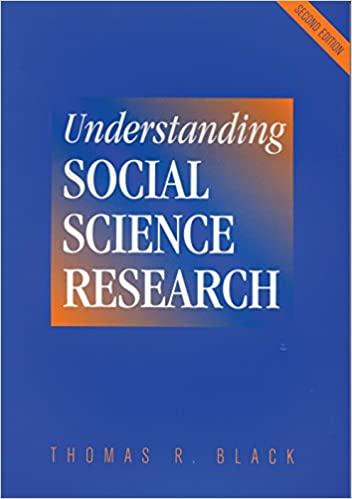Question
Respond to peer's post: Think of a team that you have belonged to. This can be a work committee, sports team, group project, etc. Apply
Respond to peer's post:
Think of a team that you have belonged to. This can be a work committee, sports team, group project, etc. Apply Tuckman's (1965) notion of developmental stages to behaviors that occurred in the group. Did the life cycle of the team follow his ideas? Why or why not?
One team experience that stands out to me is the transition between TA teams at work. I have witnessed the developmental stages outlined by Tuckman (1965), which are Forming, Storming, Norming, Performing, and Adjourning. Our journey began in the Forming stage during our initial team meeting. During this phase, everyone was polite and cautious, trying to understand each other's feelings and establish rapport since we would be working closely together. Also, we defined our roles and objectives within the team. As we worked together for a couple of months, differences in our work processes emerged, leading to conflicts and disagreements among team members. Many of us challenged each other's perspectives and questioned certain team members' leadership skills. In Tuckman's theory, this phase aligns with Storming.
Fortunately, after some time, we found common ground and developed new processes that worked for everyone. Conflicts began to dissipate, and we started forming bonds and cultivating positive relationships as a team. This transitioned us into the Norming stage according to Tuckman's theory. In the Performing stage, our team reached its peak performance. We had a cohesive unit with shared goals and a clear understanding of each member's role. Productivity was at an all-time high, and we worked together seamlessly. Typically, the Adjourning stage occurs when we finish a major orientation or project. During this phase, we feel a keen sense of accomplishment and pride in our work because, as a team, we successfully navigated through challenges and achieved our objectives.
What are some ways that you could have made this process more efficient or enjoyable? Why would your ideas work?
There were opportunities to enhance the process and make it more enjoyable through team building activities. Team building interventions often concentrate on improving the team's cohesion and social interactions (Gruman, Schneider, & Coutts, 2020). I believe such activities could have boosted our communication skills, increased our confidence, and promoted goal setting as a team. Engaging in team building might have improved our team chemistry and overall mindset (Gruman, Schneider, & Coutts, 2020).
Tuckman, B. (1965). Developmental sequence in small groups. Psychological Bulletin, 63 (6). 384-399. doi:10.1037/h0022100
Gruman, J. A., Schneider, F. W., & Coutts, L. M. (Eds.) (2017). Applied Social Psychology: Understanding and Addressing Social and Practical Problems (3rd ed.). Thousand Oaks, CA: Sage Publications.
Step by Step Solution
There are 3 Steps involved in it
Step: 1

Get Instant Access to Expert-Tailored Solutions
See step-by-step solutions with expert insights and AI powered tools for academic success
Step: 2

Step: 3

Ace Your Homework with AI
Get the answers you need in no time with our AI-driven, step-by-step assistance
Get Started


